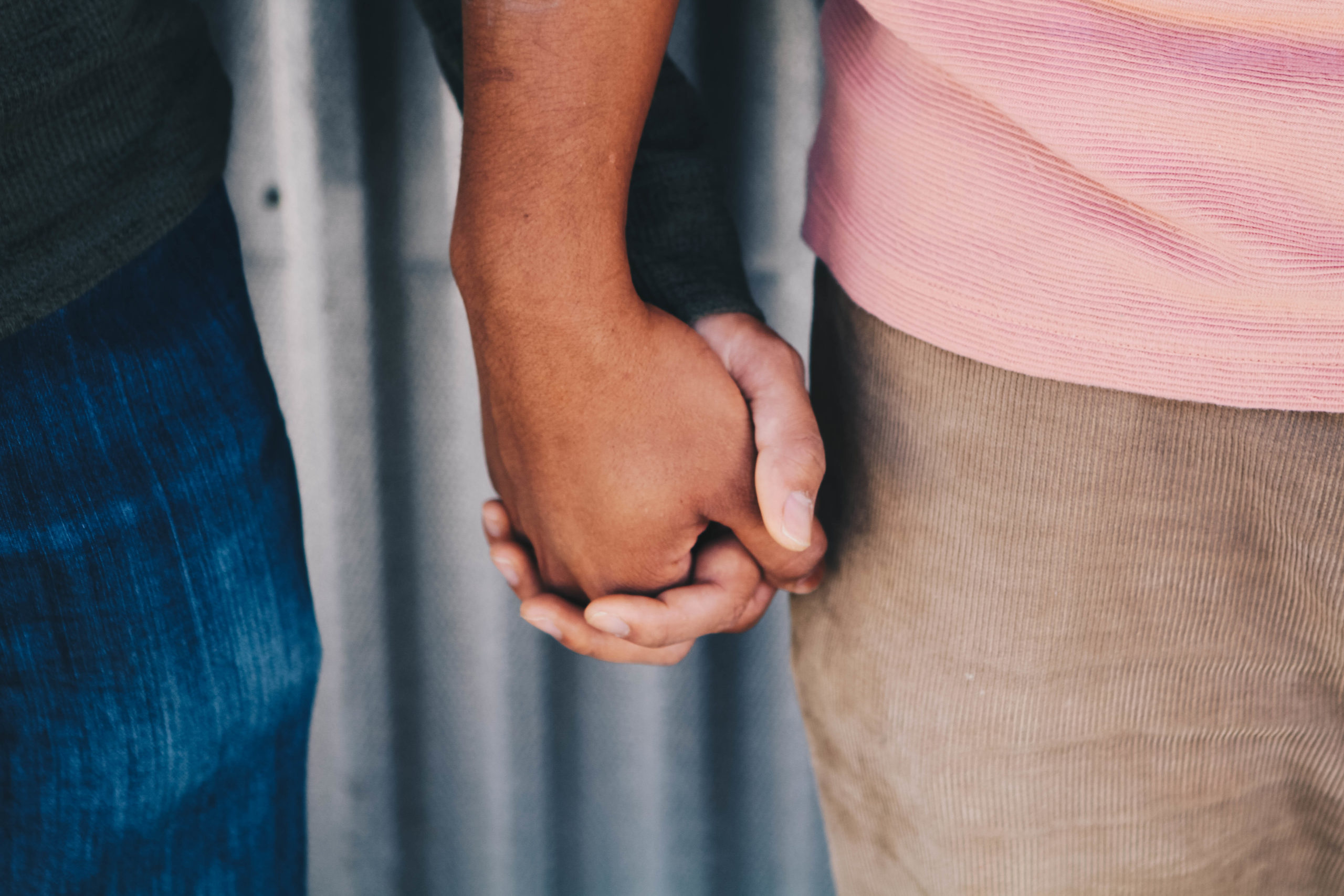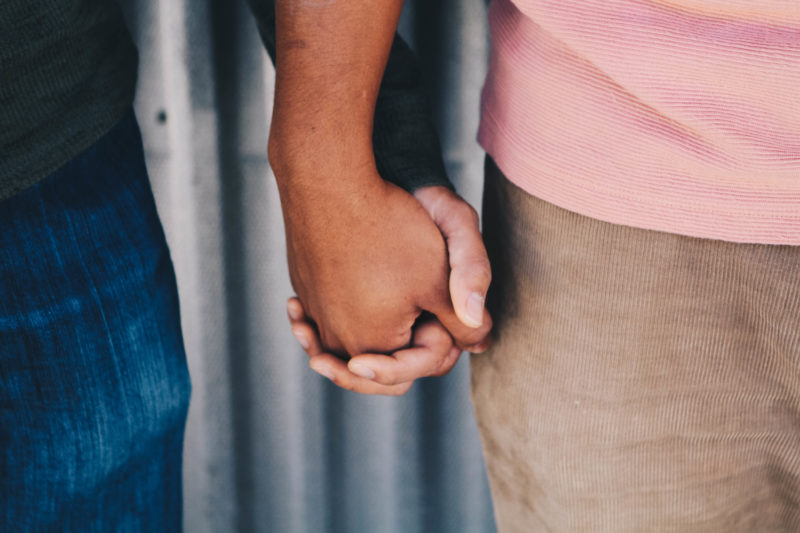


The legality of LGBTQ+ marriage (and the legality of LGBTQ+ relationships in general) varies widely throughout the world, and in many places remains in near-constant flux. Additionally, even in places where LGBTQ+ marriages are legal, there are unfortunately often still cultural hurdles that need to be navigated for LGBTQ+ couples.
The History of LGBTQ+ Marriage Rights
Before 1962, same-sex relationships were explicitly prohibited by law to varying degrees in all 50 U.S. states. As of 2015, same-sex relationships are now explicitly legal in all 50 U.S. states. However, the road to legalizing same-sex marriage was very contentious, and LGBTQ+ couples do still face varying forms of legalized discrimination in some areas.
Same-Sex Marriage Laws



Landmark laws and court cases related to same-sex marriage in the U.S. include:
Decriminalization of Homosexuality in Illinois (1961): Illinois was the first state to repeal its sodomy laws, which had effectively made homosexual relationships illegal.
Baker v. Nelson (1972): The Minnesota Supreme Court denied a request for a county to issue a marriage license to a gay couple. The United States Supreme Court then dismissed the appeal “for want of a substantial federal question.” This established a precedent against gay marriage.
California and Proposition 8 (2008): Proposition 8 was a proposed state constitutional amendment that was meant to explicitly ban same-sex marriage in California. It initially passed as a ballot measure, but was then ruled unconstitutional per the decision of the U.S. Supreme Court for Hollingsworth v. Perry.
United States v. Windsor (2013): The U.S. Supreme Court ruled section three of the Defense of Marriage Act unconstitutional, effectively determining that same-sex couples could not be denied federal benefits, and other protections relating to marriage. Obergefell v. Hodges (2015): This was the landmark case that ruled that same-sex marriage was a Constitutionally protected right in the United States.
Transgender Marriage
Landmark laws, court cases, and other legal precedents related to transgender individuals and marriage in the U.S. include:
M.T. v. J.T. (1976): The New Jersey Superior Court set an important precedent by acknowledging a trans woman’s gender in a case in which she sought spousal support following abandonment by her husband.
Littleton v. Prange (1999): The Fourth Court of Appeals of Texas ruled that a marriage between a cisgender man and a transgender woman (Christie Lee Littleton) was invalid on the basis that the court did not recognize Littleton’s gender, and same-sex marriage was not recognized in Texas at the time.
re Jose Mauricio LOVO-Lara (2005): An American transgender woman married a cisgender man from El Salvador and the couple sought to gain American citizenship for the latter based on their marriage. The immigration office initially rejected the request on the grounds that DOMA established that they were not guaranteed this right. Upon appeal, the Board of Immigration Appeals determined that DOMA did not invalidate federal marriage benefits of transgender individuals if their state of residence recognizes their gender (as was the case for the North Carolinian woman in question). Social Security Administration policy adjustment (2014): Following the public efforts of a 92-year-old transgender widow to gain survivor benefits following her husband’s death, the Social Security Administration adjusted their policy regarding transgender individuals seeking survivor benefits. While previously it was required that all claims of this nature would be referred to the Regional Chief Counsel for review, the policy adjustment now allows most such claims to be processed in the typical manner.
Other Laws and Precedents Related to Queer Marriage Rights
Other landmark laws and court cases related to LGBTQ+ relationships include:
Bowers v. Hardwick (1986): This U.S. Supreme Court decision upheld the constitutionality of a Georgia sodomy law, and effectively maintained a precedent for the validity of legal action against people who engage in same-sex relations.
Romer v. Evans (1996): The U.S. Supreme Court ruled Amendment 2 of the Colorado State Constitution unconstitutional. The amendment had barred the implementation of any laws which would extend civil rights to individuals who identify as homosexual or which would establish anti-discrimination policies on the basis of sexual orientation.
Lawrence v. Texas (2003): This decision by the U.S. Supreme Court overturned the 1986 Bowers v. Hardwick ruling by affirming that a Kansas law prohibiting same-sex relations was unconstitutional on the basis of consideration for liberty and privacy.
Masterpiece Cakeshop v. Colorado Civil Rights Commission (2018): The Colorado Civil Rights Commission determined that a bakery that had refused to do business with a same-sex couple had violated a Colorado anti-discrimination law. The Colorado Court of Appeals upheld this decision, but the U.S. Supreme Court then reversed the decision due to considerations specific to the unique case.
What Are the Differences Between Marriage, Civil Union, and Domestic Partnership?
Before same-sex marriage was legalized nationwide in the United States, same-sex couples in some states had the option to engage in a domestic partnership or opt into a civil union instead.
- Marriage: Marriage is a legally recognized union between two individuals that consolidates assets and confers many benefits, such as tax benefits, social security benefits, retirement benefits, decision-making power (such as those relating to medical decisions), inheritance benefits, health insurance benefits, benefits relating to parent-child relationships (such as the right to file for custody in the event of divorce), work-leave benefits (such as family and bereavement leave), and considerations for immigration status.
- Civil Union: A civil union is also a legally recognized union, but it is only recognized on a state level, not a federal level. As such, a couple in a civil union can only enjoy state-specific benefits. Therefore, the union may not continue to be valid if a couple moves, and they cannot enjoy federal benefits such as those relating to federal taxes.
- Domestic Partnership: A registered domestic partnership is also a legally recognized union that is only recognized on a state level. The term is sometimes used interchangeably with a civil union. However, in some states, both the institutions of civil union and registered domestic partnership exist, with differing parameters.



Challenges Faced by LGBTQ+ Couples Who Want to Get Married
LGBTQ+ couples who plan on getting married often face many unique obstacles stemming from the long (and ongoing) history of discrimination against them.
Cultural Obstacles
Some people in American culture retain the (incorrect) opinion that people in the LGBTQ+ community are immoral. They have also been made scapegoats for many specific issues, such as the AIDS epidemic. In addition to these more specific and overtly aggressive avenues of cultural vilification, people in the LGBTQ+ community also often have to contend with the pervasiveness of heteronormative culture and the pressure to conform to it. As such, even apparently well-meaning friends and family may socially sanction LGBTQ+ couples for non-heteronormative behavior, even for something so innocuous as the style of the custom engagement ring (e.g. a man wearing a traditionally “feminine” style of ring).
These expectations can cause discomfort and contention in a lot of areas, but especially one such as the institution of marriage that is so tied to tradition and was so aggressively denied to the LGBTQ+ community for a long time.
Discrimination and Harassment
LGBTQ+ individuals still often face discrimination and harassment. According to one poll, 57% of LGBTQ+ respondents said that they have personally experienced slurs being directed toward themselves, while 51% said that they or a loved one had experienced violence related to their sexual orientation or gender identity.
Discrimination and harassment toward these groups may be even more charged when LGBTQ+ individuals are witnessed engaging in public displays of affection, including wedding ceremonies. There have been several recent incidents of LGBTQ+ individuals being fired from their jobs directly following their wedding, including Jocelyn Morffi of Florida and Al Fischer of Missouri.
Family Planning
While LGBTQ+ couples in the U.S. no longer have to struggle against family law obstacles that stem from an inability to get married, there are still unique hurdles that they commonly encounter. These largely relate to adoption and custody issues regarding biological children. Many adoption agencies refuse to work with same-sex couples, and court systems often favor the biological parent in custody cases wherein one parent is the blood relation of the child and the other is not (a common situation for gay couples).
Considerations for LGBTQ+ Weddings Abroad
It is important that if you are part of the LGBTQ+ community and are planning on getting married abroad that you prepare appropriately, as laws and cultural views on LGBTQ+ relationships vary widely throughout the world. The following are a few good steps to take:
- Consider choosing a location based on how accepting it is of LGBTQ+ individuals.
- Once you have chosen a location, research the national and local laws and customs that may affect you or your wedding ceremony.
- Hire a cultural mediator to help you navigate any cultural misunderstandings or barriers.
- Sign up for the STEP program.
- Be aware of any programs and agencies both in the U.S. and on location that can provide you with relevant information and assistance, and ensure that you have all of the information necessary to contact them easily.
- Get traveler’s insurance.
- Keep copies of important documents such as your passport.
Other Unique Wedding Planning Considerations for LGBTQ+ Couples
Many other considerations are common to LGBTQ+ wedding plans, including:
- Safety: LGBTQ+ people who are intending to get married may need to make additional safety considerations, such as research into local attitudes toward the LGBTQ+ community, and door security. Whether this is necessary or desired depends on many factors such as personal preferences, the size of the event, and the location of the event.
- Adjustment to traditions: Many LGBTQ+ couples decide to make adjustments to or completely alter the traditions surrounding marriage, from the engagement rings, to the clothing, to the ceremony itself. These potential alterations should be determined through an assessment of what parts of the lead-up and ceremony are most important to you and what you want from the experience.
- People management: It is possible that for many reasons, heteronormative culture may impact how the people around you behave. This can be difficult to navigate, and again the need to deal with this will depend on various factors such as your location and the size of your event. Ways that you manage this situation can include having a limited guest list, making your expectations clear beforehand, and enlisting trusted individuals to help you deal with any interpersonal issues that arise.
Resources for Wedding Inspiration and Support
25 Fabulous Same-Sex Wedding Ideas: This is a list of interesting ideas for same-sex wedding ceremonies.
Gay Wedding Institute: This organization helps put LGBTQ+ couples who are getting married in contact with sensitive, appropriate professionals to assist them with the process.
How to Deal With Unsupportive Friends or Family: This guide explores considerations for unsupportive friends and family and how to deal with them during the marriage process.
Shane Co.: This company offers many customizable options for engagement and wedding rings.
Directories for LGBTQ+ Ally Marriage and Wedding Services
EnGAYged Weddings: This is a directory of gay-friendly wedding vendors throughout the United States.
LGBTWeddings.com: This search tool can help LGBTQ+ people find vendors for their weddings.
Equally Wed: This directory can help LGBTQ+ people find a wide variety of vendors for their weddings.
Additional Resources
LGBTQ Family-Building Grants: This is a resource for grants relating to family-building options such as adoption and fertility treatments for LGBTQ+ people.
Rainbow Wedding Network: This website offers a vendor directory, informational resources, news, and registry-building tools related to LGBTQ+ weddings.
Department of State Travel: This is a list of resources relevant to LGBTQ+ adoption that has been compiled by the U.S. Department of State.



